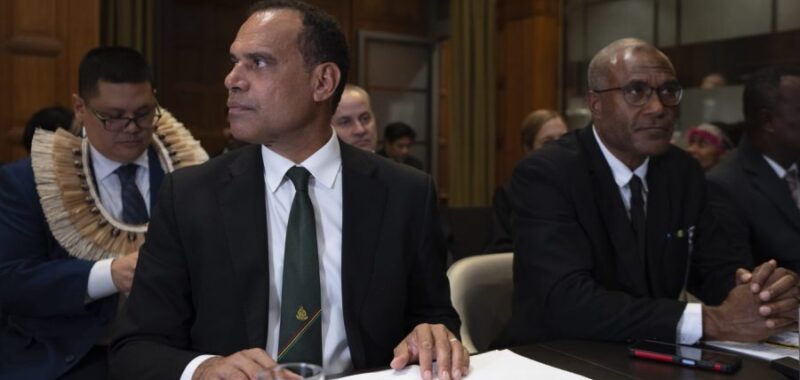
Representatives for the island nation of Vanuatu called on the International Court of Justice this week to recognize the harm caused by climate change, the first remarks the United Nations court heard as it considers international obligations to address climate impacts.
“The outcome of these proceedings will reverberate across generations, determining the fate of nations like mine and the future of our planet,” Ralph Regenvanu, the country’s special envoy for climate change and the environment, said in remarks Monday at The Hague. “Today, we find ourselves on the frontlines of a crisis we did not create, a crisis that threatens our very existence.”
Conversely, he said, the majority of planet-warming emissions come from “a handful of readily identifiable states” that will not suffer immediate consequences to the same degree as poorer and island nations.
Over the next two weeks, the 15-member court is set to hear arguments from representatives of nearly 100 countries, including China and the U.S., the two biggest national emitters, before issuing an opinion on states’ obligations regarding climate change. The court’s opinions are not legally binding, and neither China nor the U.S. fully acknowledges its authority. But if the court sides with Vanuatu and its allies, it could provide a major precedent for climate change-related lawsuits.
A group of law students in Oceanian nations worked in collaboration with Vanuatu for years to secure the ICJ hearing, and the United Nations General Assembly called on the court to issue an opinion on the matter in a unanimous vote in March.
Vanuatu, home to about 336,000 people, is an archipelago of 82 islands, many of which are as little as 3 feet above sea level, and has seen sea level increase by about 0.2 inches in the past 30 years as well as an increase in extreme weather like tropical cyclones, flooding and landslides.

